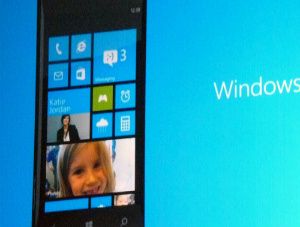Microsoft is warning users of its Windows Phone platform that their handsets are vulnerable to attack by rogue hotspots.
In a security advisory this week, the company said a weakness in its Wi-Fi authentication protocol could be exploited by an operator of a rogue wireless network.
An attacker-controlled hotspot could pose as a known Wi-Fi access point, causing the targeted device to automatically attempt to authenticate with the rogue access point, Microsoft said. In turn, the attacker could intercept the victim’s encrypted domain credentials and use weaknesses in the encryption of those credentials to re-use them and access their corporate network.
"Microsoft is not currently aware of active attacks or of customer impact at this time," the advisory said. "Microsoft is actively monitoring this situation to keep customers informed and to provide customer guidance as necessary."
To remedy the problem, Microsoft recommends that system administrators create a certificate for their wireless access point and require handsets running Windows Phone 8 or 7.8 to check for that certificate before authenticating with the access point.
However, it’s not addressing the weak encryption problem with its authentication protocol known as PEAP-MS-CHAPv2.
"It’s a little bit scary to have network credentials out in the open and discoverable," Wade Williamson, a senior security analyst with Palo Alto Networks, said in an interview. "That is still a problem, even with the certificate."
"The vulnerability isn’t mitigated," he said. "We’re still exposing information that shouldn’t be exposed."
Lookout Security Product Manager Jeremy Linden noted that the existing protocol, PEAP, already has the power to check an access point’s certificate to see whether its genuine.
"For many mobile devices like Windows Phones, this is off by default, meaning that it is trivial for an attacker to create a rogue access point that pretends to be the network you recognize, like your corporate network," Linen said by email.
Those access points can stealthily connect to a handset, noted Gavin Reid, director of threat research for Cisco Security Intelligence Operations. "A phone that’s been set up to automatically connect to wireless networks will make that connection without you knowing it," he said in an interview.
Microsoft declined to comment in detail. "We are aware of this industry-wide issue, and after coordinating with the researchers and a thorough investigation, released mitigation guidance in Security Advisory 2876146 to help protect customers," the company said in an e-mailed statement.
It appears that the vulnerability can only be exploited in devices running Microsoft software. "Anyone who uses the vulnerable protocol would be susceptible to its problems," Tenable CEO Ron Gula said in an interview, "but I don’t think there are other mobile platforms that can be targeted like this."
But other platforms may not be safe down the road.
"I wouldn’t be surprised that over the next year or two years, you’ll find another mobile platform with these types of issues," he said.
IDG News Service









Subscribers 0
Fans 0
Followers 0
Followers